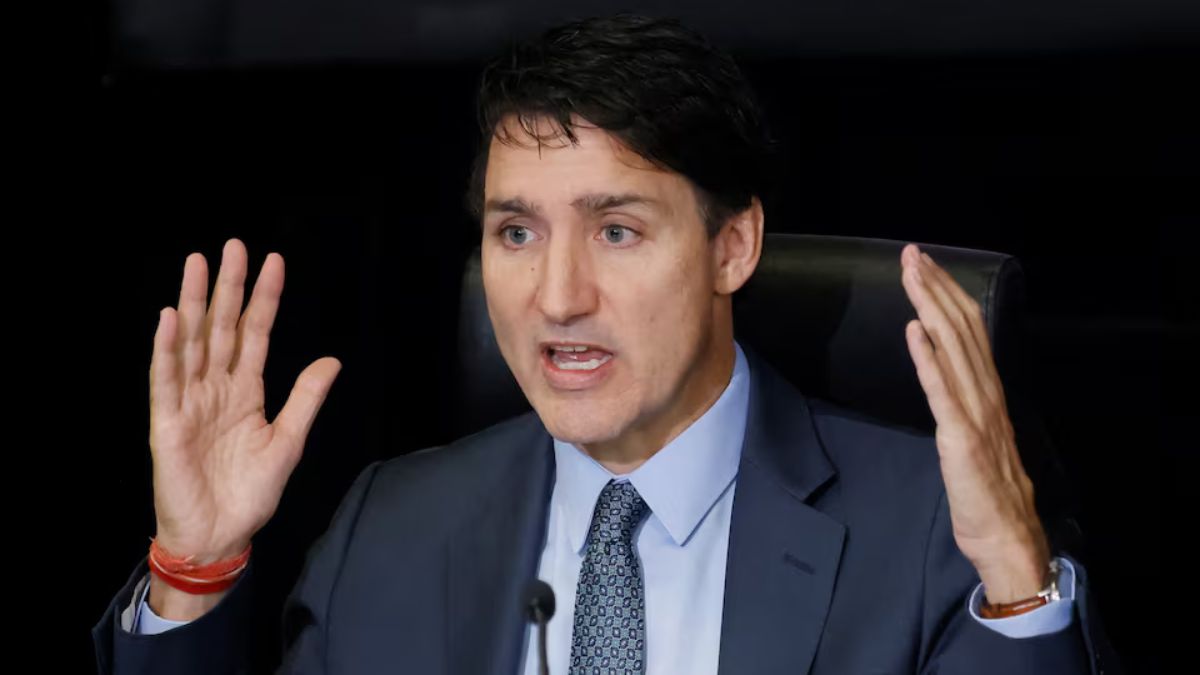The recent diplomatic crisis between India and Canada stems from allegations made by Canadian Prime Minister Justin Trudeau regarding the assassination of Hardeep Singh Nijjar, a prominent Khalistani separatist, in Surrey, British Columbia. Trudeau’s public statements accusing Indian agents of involvement, while initially presented as credible evidence, have since been acknowledged as based primarily on intelligence rather than concrete proof. This has sparked a significant diplomatic fallout, leading to the expulsion of diplomats from both countries and a sharp deterioration in bilateral relations. The situation is further complicated by the involvement of intelligence agencies and the underlying complexities of the Khalistani movement, raising concerns about interference in domestic affairs and potential breaches of national sovereignty. This escalation significantly impacts the already strained relationship between the two nations and raises questions about the future of India-Canada cooperation on various fronts.
Canada’s Accusations and the Lack of Concrete Evidence
Canadian Prime Minister Justin Trudeau’s accusations against India regarding the assassination of Hardeep Singh Nijjar have been the central point of contention. Trudeau initially claimed to possess credible evidence linking Indian agents to the killing. However, during testimony before an independent commission investigating foreign interference, he admitted that this evidence was primarily based on intelligence and not hard, verifiable proof. This revelation significantly undermined the initial weight of the accusations and fueled skepticism within India.
The Intelligence Gap
The reliance on intelligence as opposed to concrete evidence raises significant questions about the accuracy and reliability of the information upon which Trudeau based his public accusations. The lack of tangible proof has allowed India to firmly deny any involvement and has fueled accusations that the Canadian government acted prematurely and without sufficient verification. This difference in the level of proof and the resulting diplomatic actions are a key element of the ongoing crisis.
The Political Ramifications
The timing and context of Trudeau’s public statements also play a significant role. The allegations came at a time of heightened political tensions within Canada, potentially influencing public perception and domestic political dynamics. The lack of definitive proof has also fueled concerns that Canada’s approach risks undermining international relations based on unverified intelligence claims, and creating an unstable precedent for future diplomatic incidents.
India’s Response and Diplomatic Fallout
India reacted strongly to Canada’s accusations, firmly denying any involvement in Nijjar’s assassination. The Indian government’s response included expelling six Canadian diplomats and recalling its High Commissioner from Canada. This decisive action underscores the gravity of the situation and the perceived affront to India’s sovereignty.
Expulsion of Diplomats
The expulsion of diplomats serves as a strong symbol of India’s disapproval of Canada’s actions. It reflects the seriousness with which India views the allegations and the damage to bilateral relations. The expulsion was a direct response to what India termed “baseless targeting” of its officials, escalating the diplomatic conflict beyond mere disagreements and signaling a breakdown of trust between the nations.
The Impact on Bilateral Relations
The escalating diplomatic row between India and Canada has significantly strained relations between the two nations. The actions taken by both countries indicate a profound breakdown of trust, significantly impacting several spheres of cooperation that existed beforehand. The future of numerous initiatives, covering trade, investment, immigration, and people-to-people exchanges are directly threatened. This damage transcends the current crisis and poses potential long-term negative consequences on previously successful collaborations.
The Role of the Khalistani Movement
The backdrop of the ongoing crisis includes the long-standing issue of the Khalistani movement, seeking a separate Sikh state in India. Hardeep Singh Nijjar, the victim of the assassination, was a prominent figure within this movement. This historical context is crucial to fully understanding the intricacies of the Canada-India diplomatic crisis.
The Movement’s International Dimensions
The Khalistani movement has international dimensions and is known for actively engaging in political lobbying and advocacy efforts in different countries, influencing diaspora communities, particularly in Canada. Understanding this engagement is key in examining Canada’s motivations and its assessment of perceived risks to Canadian sovereignty and security that the Indian government might present. This dimension influences the intensity of the diplomatic response.
Security Concerns and International Relations
Concerns over the activities of various Khalistani groups abroad directly intersect with the current tensions between India and Canada. This adds a security dimension to the situation, influencing government policies and diplomatic strategies. It’s a complex interplay between internal security concerns, international relations, and allegations of external interference.
Takeaways
The India-Canada diplomatic crisis highlights the challenges of navigating complex international relations, particularly when allegations of state-sponsored violence are involved. The lack of concrete evidence supporting the Canadian government’s claims casts a significant shadow over the credibility of the accusations and fuels further tension. The actions taken by both nations demonstrate the profound consequences of these actions on their relationship and its far reaching consequences across many diplomatic areas and on bilateral economic co-operation. The involvement of the Khalistani movement adds a layer of complexity to the situation, exposing the international ramifications of this conflict and the sensitive issue of interference within other nations’ internal affairs. The situation is dynamic, requiring continued close monitoring and a careful pursuit of diplomatic solutions to mitigate further deterioration of relationships.









